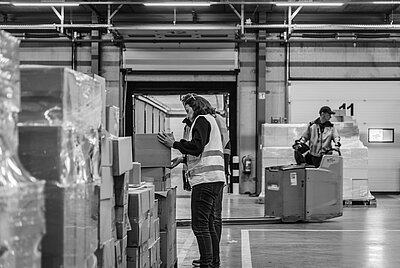Pre-Covid, conventional wisdom would have suggested that big stores and chains were far more secure than independents, having history, powerful brands and financiers on their side. But that wisdom proved wrong. Research by the Local Data Company and PwC calculated a net decline of 1,833 independent stores from the British high street alone in 2020, but that was less than a third of the 6,001 chain stores that went the same way.
Adopting an independent mindset
Clearly, chains need to learn from independent retailers, even if they can’t emulate them in every respect. Multi-market brands may have significant real estate to service and centralised departments for buying, merchandising and staffing, but that shouldn’t prevent them from emulating the ‘independent’ retail mindset – particularly not when delegating decision-making to managers with local market presence could help them to weather the storm.
There is some evidence that this is happening. McKinsey found that two of the five key lessons agile retail organisations learned during the pandemic were to empower their staff and set up structures that allow for rapid decision-making. It recommended that they “ensure people continue to feel empowered, rather than returning to central control and rigid processes”, while emphasising “quick, efficient and continuous decision-making rather than making big bets.”
It highlighed a UK grocer that “made the decision to close its fresh meat and fish counters and reassign the staff to other jobs within a single meeting, a decision that might normally have taken weeks or months.”
Creative Thinking
IGD Research encapsulates the problem of the regional, national or international thinking prevalent in larger brands. “A cookie cutter approach can be uninspiring and impersonal,” it warns, advising that “while a core offer is often essential for consistency, flexing around the edges can help better serve catchments with differing demands and heritage.” And, as IGD Research points out, “not all elements of a shop necessarily need to be operational while a store is trading.”
Streamlining product range would allow retailers to bring their best-performing lines to the front of the store, emulating the independent retail experience and saving risk-averse customers from venturing further into a shop than they are comfortable with.
But even this might not be enough for some customers, which will only be engaged by a more extensive re-thinking of what business means when ‘business as usual’ is no longer an option. John Lewis did just this when, in April, it “launched a platform to provide its in-store services online, which included a virtual nursery, home design and style advice through video calls with customers.”
French retailer Galleries Lafayette, is likewise focused on “blending brick and mortar and e-commerce to create an omnichannel experience for its customers. They are also looking at technologies like augmented reality (AR) and virtual reality (VR) to enhance the remote shopping experience.” In doing so, it will have a better chance of remaining in consumers’ minds, maintaining sales in a challenging retail environment and be seen by its customers as having weathered the storm alongside them.
Value vs convenience
But if retailers are set to carry a smaller range of products, how do they know which to prioritise when the markets they serve have undergone such radical change over the last 12 months?
With many people losing their jobs – or facing such a prospect – shoppers are increasingly prioritising ‘value’ when choosing between brands. McKinsey found that European consumers cite this as one of their reasons for choosing what to buy, while ‘convenience’ influences where the purchase is actually made.
The retail brands that thrive in 2021 will be those that balance these two key elements, value and convenience effectively.
Marshall & McLennan advises that, when consumers are tightening their belts, retailers need to focus on the basics by “managing short term costs, optimising choice and pricing while continuing to deliver a ‘reason to shop’ with that retailer.” Nonetheless, it says, “there are opportunities for smart-thinking retailers to make the best of the situation.”
Being agile isn’t only a case of surviving during a crisis like the coronavirus pandemic. While competitors are also closed for extended periods, it could even be an opportunity for the most agile retailers to step in – and step up.
Looking for support in becoming more agile and efficient? Worldpack is trusted by some of the world’s biggest brands to help with proactive stock management and detailed insights. Why not give us a ring on +31 (0) 88 494 20 80 or email us at online@worldpack.eu to see how we can help you.


